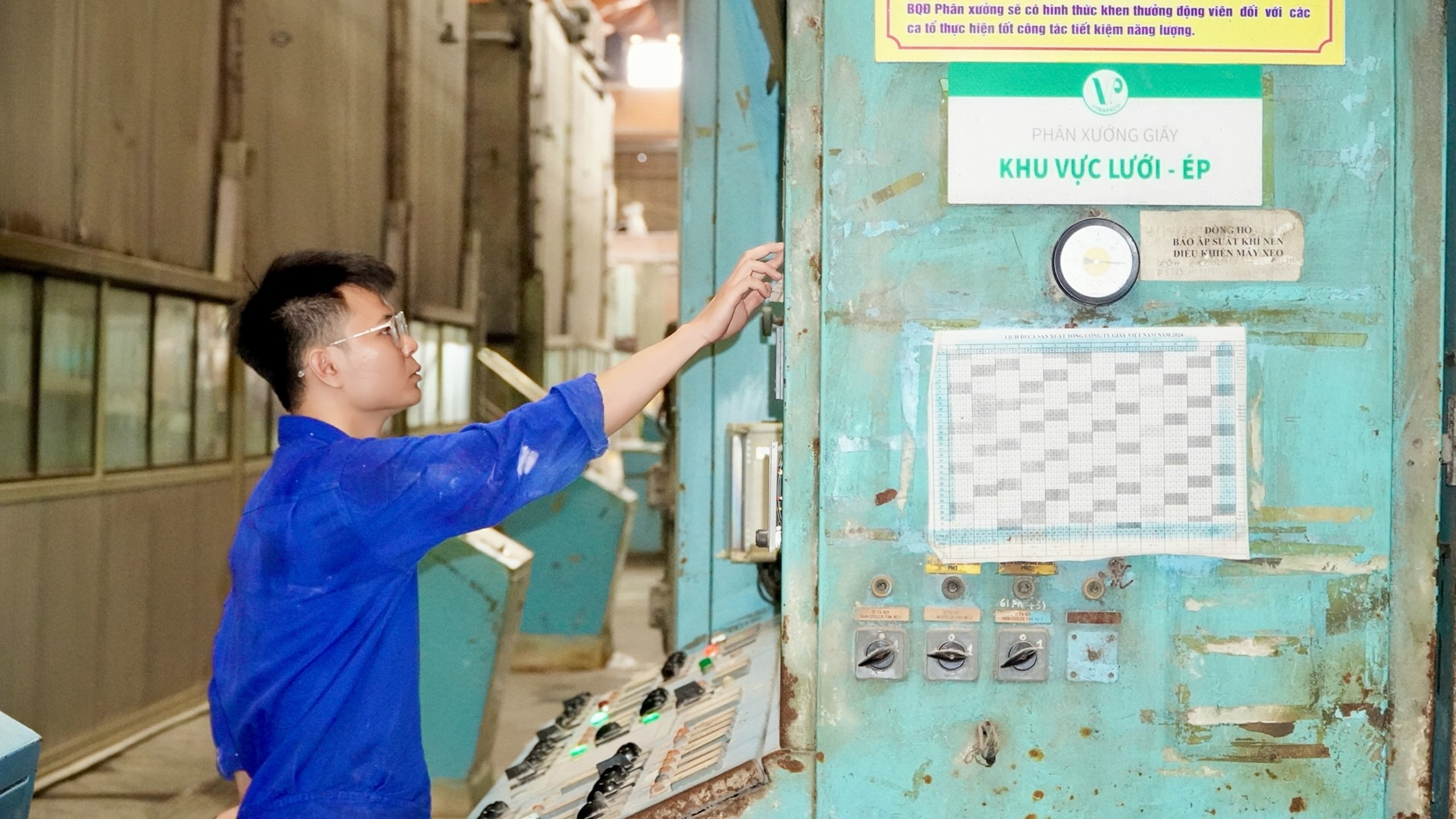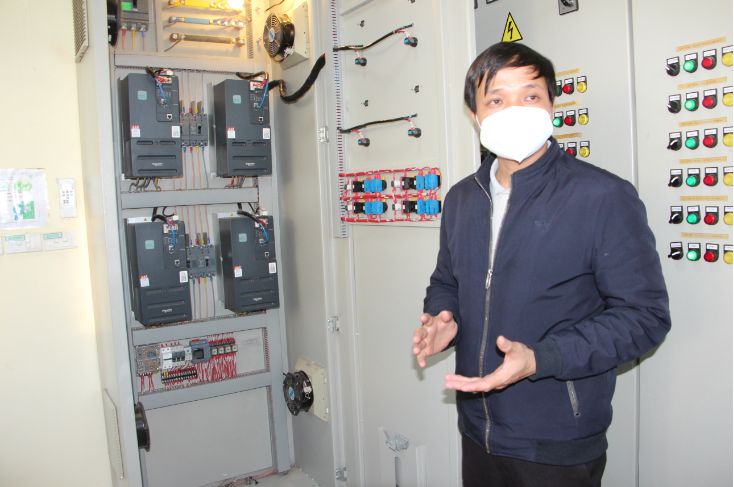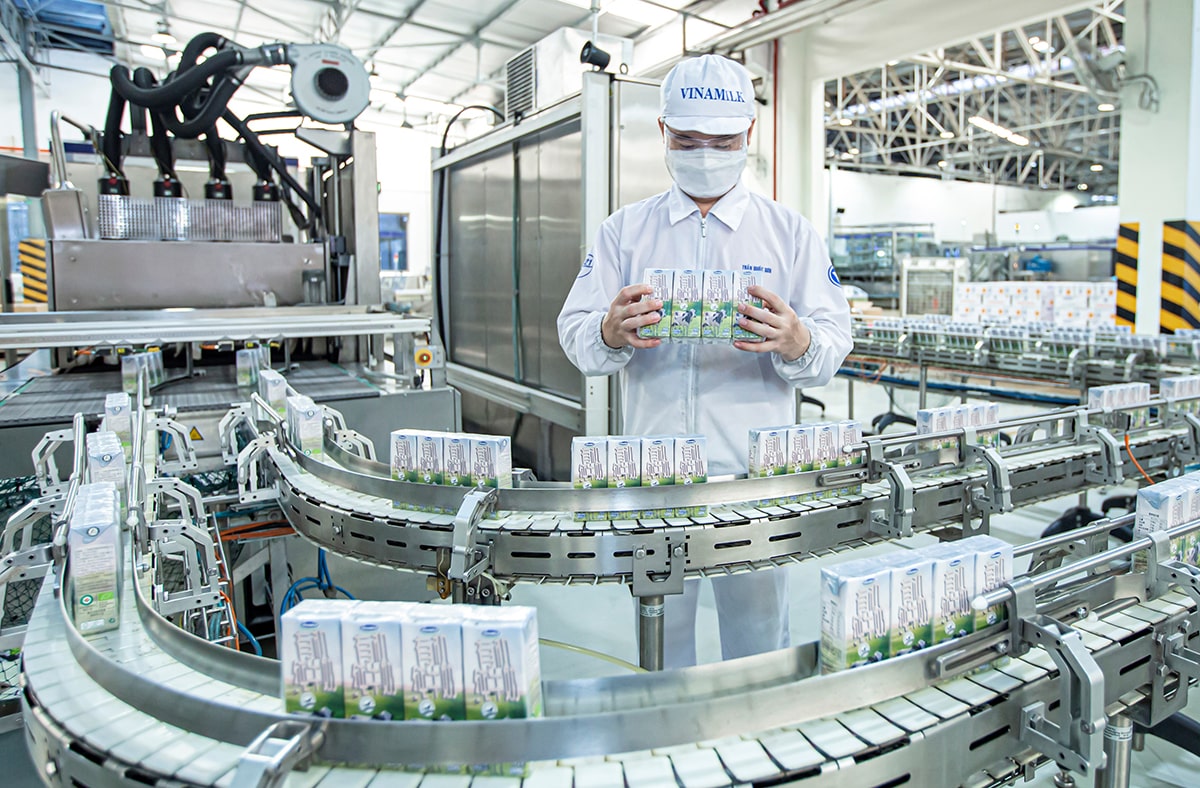Energy efficiency and conservation measures for industrial enterprises
Chủ nhật, 06/10/2024 - 10:52
Energy efficiency and conservation usage in industry are crucial to the development of the economy and society while ensuring national energy security.
Energy efficiency and conservation usage is are practical solutions to improve economic efficiency, conserve energy resources, and protect the environment. According to the Ministry of Industry and Trade, industrial sectors account for more than 50% of the nation's total energy consumption and have the potential to save up to 20-30%.
Energy savings, including electricity conservation, help businesses optimize production and operating costs, thus increasing profitability and competitiveness in the market. Reducing electricity consumption also helps industrial enterprises lower their energy usage, meet goals for reducing greenhouse gas and carbon emissions in production activities, and create greener products that meet consumer demands.
According to experts, the core of energy-saving and efficient use in industrial enterprises involves coordinating four methods: raising energy-saving awareness among employees; modernizing technology and using alternative energy sources; applying energy management standards and systems; and monitoring and retrofitting systems towards energy efficiency.
| On June 8, 2023, the Prime Minister issued Directive No. 20/CT-TTg on enhancing electricity conservation for the 2023-2025 period and the following years. Accordingly, the Prime Minister has set a goal for the country to save at least 2.0% of total electricity consumption annually during the 2023-2025 period and beyond. Manufacturing enterprises are encouraged to implement energy-saving and electricity-saving solutions, install rooftop solar power systems, and more. Specifically, for facilities consuming over 1 million kWh/year, they must save at least 2% of energy consumption per unit of product each year or reduce total electricity consumption by at least 2% annually. |
Raising energy-saving awareness
Industrial enterprises's production often incur significant electricity costs, mainly due to employee habits and awareness of energy use. Raising awareness of the benefits of energy conservation among employees can contribute to the company’s overall efforts. Companies can highlight the benefits of saving energy, initiate competitive campaigns, and organize reward activities for groups or individuals, creating a habit and culture of energy conservation.
Vinapaco (Vietnam Paper Corporation) is one of the companies that has been promoting education and raising awareness, fostering proactive energy-saving habits among its staff. Each department has established guidelines for safe and energy-efficient operation of production equipment and lighting systems in workshops, with strict requirements for employees to comply. In particular, banners, slogans, and warning signs related to energy-efficient use have been displayed throughout the company.

Vinapaco Implements Energy Savings in Production Equipment Operations
Mr. Ngo Tien luan, Head of the Technical Department at Vinapaco, stated: "The company focuses on training to raise awareness among employees to ensure the achievement of energy-saving goals. Specifically, the company sends specialized staff to participate in energy-saving training courses to enhance their knowledge, which is then used to guide and disseminate to workers the practices of energy-efficient use annually."
Modernizing Technology and Using Alternative Energy Sources
In production, older equipment often consumes more electricity, leading to higher costs and posing risks such as electrical leakage or even fire hazards. Therefore, businesses should consider replacing old machinery with modern, safer, and more energy-efficient equipment. Additionally, installing high-efficiency electrical and mechanical devices like motors, lighting systems, pumps, and thermal and ventilation equipment is another way to save energy and optimize business operations.
Applying inverter technology to control motor speed in the factory based on actual requirements has proven to be an effective method of energy saving in various applications, including air compressors, boiler fans, grinders, and pumps.
The deployment of renewable energy systems, such as rooftop solar power, plays a crucial role in reducing electricity consumption and can generate surplus electricity to feed back into the national grid.
Common effective solutions that businesses often apply include energy conversion, rooftop solar power installations, and heat recovery systems.

Investing in Inverter Systems to Save Electricity.
Nam Dinh Granite Tile Joint Stock Company (VID Company) has boldly adopted technological innovations to reduce energy costs. Mr. Nguyen Kim Tuc, General Director of VID Company, shared that to use energy more efficiently, a series of projects and solutions have been implemented. One standout initiative is the application of inverter technology to reduce electricity consumption. According to the company’s calculations, motors equipped with inverters reduce electricity consumption by 10-20%.
In addition, the company has invested in fuel-saving kiln systems, utilizing titanium burners capable of complete combustion, leaving no residual gases in the environment due to their ability to recapture and re-burn excess emissions. This system has saved nearly 30% in energy compared to older kiln technology.
VID Company has also thoroughly applied heat recovery processes during production for use in drying. For example, the company moved the chain coal furnace closer to the drying tower to reduce energy loss along the pipeline, which reduces coal usage during drying. Moreover, the company has invested in a heat recovery system for the kilns, which allows the drying system to operate with minimal fuel consumption. This innovation enables the drying process to function almost without the need for combustion fuel.
.png)
The State-of-the-Art Production Line of VID Company.
Discussing the company's development plans for the next five years, Mr. Nguyễn Kim Túc shared: “The company has planned to invest in a new production facility and will select the most energy-efficient equipment. Currently, we use 0.95 kg of gas per square meter of fired tiles, but in the future, we aim to reduce this to below 0.5 kg per square meter of fired tiles while still ensuring product quality. We also plan to increase the plant’s capacity from 4 million to 20-25 million square meters of tiles per year.”
Applying Energy Management Standards and Systems
Building an energy management system according to ISO 50001 standards will help businesses and energy-consuming organizations in the industrial sector improve energy use while promoting energy conservation and efficiency.
With the application of energy management standards like ISO 50001, energy-saving activities are integrated into the management systems of industrial enterprises. This helps accelerate the adoption of best practices for sustainable energy efficiency, improving the stability of industrial production operations and increasing productivity.
According to a survey by the United Nations Industrial Development Organization (UNIDO), businesses that apply an energy management system for the first time can achieve energy savings of 10-20%.
Vinamilk: A Leading Example of Energy Efficiency through ISO 50001.
Vinamilk, Vietnam's largest dairy company, is a prime example of a business that uses energy efficiently, largely thanks to its implementation of ISO 50001. Mr. Nguyen Quoc Phong, Head of Energy, Environment, and Circular Economy at Vinamilk, shared that since 2013, all of the company's factories have adopted the ISO 50001 energy management system. Employees in the factories are regularly trained on energy management, with all team members involved in energy management required to attend energy training at least once a year to update their knowledge and ensure the system is effectively implemented.
Mr. Phong emphasized that "the ISO 50001 energy management system is an advanced tool that scientifically evaluates systems and helps factories identify existing inefficiencies and energy-saving opportunities." This system has proven essential for optimizing energy use at Vinamilk.

ISO 50001 is a highly effective tool for businesses seeking energy-saving solutions. It not only enhances energy efficiency but also supports sustainable development strategies, demonstrating corporate responsibility for energy security and environmental protection on a global scale.
ISO 50001 standard is an effective tool for enterprises in finding solutions to use energy efficiency and conservation, helping them pursue sustainable development strategies, demonstrating responsibility to the environment and society in ensuring energy security on a global scale.
Monitor and improve the system toward energy-saving
To maximize energy efficiency, enterprises should employ technologies that monitor, measure, analyze, and alert management to potential energy waste or leaks. These tools enable companies to manage their electricity usage efficiently, intervene in cases of unusual energy consumption, and identify the causes of energy waste promptly.
Key actions include controlling high-energy-consuming areas and systems, planning production schedules to minimize the use of heavy-duty electrical equipment during peak hours, and optimizing devices to avoid energy waste. It's crucial to prevent electrical devices from running idly and to reuse excess heat in production processes to maximize energy efficiency.
Additionally, companies should establish energy-saving plans by maintaining and cleaning equipment regularly, which not only reduces energy costs but also extends the lifespan of machines and enhances operational efficiency.
.png)
The Control Room at Tan Thang Cement Plant manages and monitors all activities of the plant.
Energy conservation offers numerous benefits to businesses, such as reducing pressure on the national power grid. However, energy saving is a long-term strategy that requires companies to have a clear vision and to apply synchronized, flexible solutions tailored to their business models for optimal results.
Duc Do
